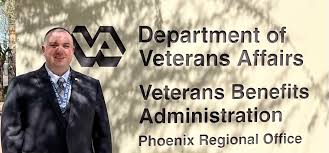Veterans’ Affairs: Honoring Those Who Served
Veterans’ affairs are a crucial aspect of any society that values the sacrifices made by the men and women who have served in the military. These individuals have put their lives on the line to defend our freedoms and protect our way of life. It is our duty as a society to ensure that they receive the care and support they need when they return home.
The Department of Veterans Affairs (VA) is responsible for providing a wide range of services to veterans, including healthcare, education, disability compensation, and vocational rehabilitation. These benefits are essential for veterans who often face unique challenges when transitioning back into civilian life.
One of the most significant challenges that veterans face is accessing healthcare. The VA provides comprehensive medical care to eligible veterans, including primary care, specialty care, mental health services, and long-term care. However, there have been concerns about wait times and access to care at VA facilities in recent years.
Another critical aspect of veterans’ affairs is education. The GI Bill provides financial assistance for veterans to pursue higher education or vocational training after their service. This benefit has helped countless veterans achieve their academic and career goals.
Disability compensation is another vital benefit provided by the VA. Veterans who were injured or became ill as a result of their military service may be eligible for compensation for their disabilities. This financial assistance can help alleviate some of the financial burden associated with medical expenses and lost wages.
Vocational rehabilitation is another important service provided by the VA. This program helps veterans with service-connected disabilities prepare for, find, and maintain suitable employment. It includes job training, counseling, resume development, and other support services.
In addition to these benefits, there are many other resources available to veterans through various organizations and programs across the country. These include housing assistance programs, legal aid services, financial counseling services, and much more.
Honoring those who served in our military should be a top priority for all Americans. Veterans’ affairs are a critical component of this effort, ensuring that those who have sacrificed so much receive the care and support they deserve. As a society, we must continue to work to improve these services and ensure that veterans are never forgotten or left behind.
Answers to Commonly Asked Questions about Veterans’ Affairs and Benefits
- What benefits are available to veterans?
- How can I apply for veterans’ benefits?
- Who is eligible for veterans’ benefits?
- How do I access my VA health care benefits?
- What services does the VA provide to veterans?
- Where can I find information about veteran resources and programs?
What benefits are available to veterans?
There are a wide range of benefits available to veterans, depending on their service history, disability status, and other factors. Here are some of the most common benefits that veterans may be eligible for:
- Healthcare: The Department of Veterans Affairs (VA) provides comprehensive medical care to eligible veterans, including primary care, specialty care, mental health services, and long-term care.
- Disability compensation: Veterans who were injured or became ill as a result of their military service may be eligible for compensation for their disabilities. This financial assistance can help alleviate some of the financial burden associated with medical expenses and lost wages.
- Pension: Veterans who have low income and limited assets may be eligible for a pension from the VA.
- Education: The GI Bill provides financial assistance for veterans to pursue higher education or vocational training after their service.
- Vocational rehabilitation: This program helps veterans with service-connected disabilities prepare for, find, and maintain suitable employment. It includes job training, counseling, resume development, and other support services.
- Home loans: The VA offers home loan programs that can help veterans purchase or refinance homes at favorable rates.
- Life insurance: The VA offers life insurance options for eligible veterans and their families.
- Burial benefits: The VA provides burial benefits including burial in a national cemetery, headstones or markers, burial flags, and reimbursement of burial expenses.
- Legal assistance: Veterans may be eligible for free legal assistance through the VA or other organizations that provide legal aid services to veterans.
- Other benefits: There are many other resources available to veterans through various organizations and programs across the country including housing assistance programs, financial counseling services among others.
It’s important to note that eligibility requirements vary depending on the benefit in question and that not all veterans are eligible for every benefit listed above. Veterans are encouraged to contact their local VA office or visit the VA website to learn more about the benefits they may be eligible for.
How can I apply for veterans’ benefits?
If you are a veteran or an active duty military member, you may be eligible for a range of benefits and services provided by the Department of Veterans Affairs (VA). Here are the steps to apply for veterans’ benefits:
- Determine your eligibility: Before applying for veterans’ benefits, you need to determine if you are eligible. Eligibility criteria vary depending on the benefit or service you are seeking. You can check your eligibility online at VA.gov or by calling the VA at 1-800-827-1000.
- Gather necessary documents: Once you have determined your eligibility, gather any necessary documents to support your application. These may include your discharge papers (DD214), medical records, and other documentation related to your military service.
- Choose a benefit or service: There are many different benefits and services available to veterans, including healthcare, education, disability compensation, and vocational rehabilitation. Choose the benefit or service that best meets your needs.
- Apply online or in person: You can apply for veterans’ benefits online at VA.gov, by mail, or in person at a VA regional office or medical center. The application process varies depending on the benefit or service you are seeking.
- Wait for a decision: After submitting your application, it may take several weeks or months for the VA to process your claim and make a decision. You can check the status of your application online at VA.gov.
- Appeal if necessary: If your claim is denied, you have the right to appeal the decision. You can do this by filing a Notice of Disagreement (NOD) with the VA within one year of receiving their decision.
Applying for veterans’ benefits can be a complex process, but it is worth it to receive the care and support that you deserve as a veteran. If you need assistance with this process, consider reaching out to a Veterans Service Organization (VSO) or contacting a VA representative for guidance.
Who is eligible for veterans’ benefits?
Eligibility for veterans’ benefits varies depending on the specific benefit being sought. Generally, veterans who have served on active duty in the U.S. Armed Forces and were discharged under conditions other than dishonorable may be eligible for VA benefits. In some cases, family members of veterans may also be eligible for certain benefits.
For healthcare benefits, veterans must meet certain eligibility criteria based on their service history and income level. Those who served in combat zones or were exposed to certain environmental hazards during their service may also be eligible for additional healthcare benefits.
For education benefits, veterans must have served a minimum period of active duty and received an honorable discharge. The specific requirements vary depending on the type of education benefit being sought.
For disability compensation, veterans must have a service-connected disability or illness that was caused or aggravated by their military service. The severity of the disability will determine the amount of compensation awarded.
For vocational rehabilitation benefits, veterans must have a service-connected disability that makes it difficult to find or maintain employment. They must also meet other eligibility criteria based on their service history and income level.
Overall, it is important for veterans to consult with the VA or a qualified Veterans Service Officer to determine their eligibility for specific benefits and how to apply for them.
How do I access my VA health care benefits?
Accessing your VA health care benefits is a straightforward process. Here are the steps you need to follow:
- Determine your eligibility: To be eligible for VA health care benefits, you must have served in the active military, naval or air service and received an honorable discharge. You may also be eligible if you are a current or former member of the Reserves or National Guard who was called to active duty by a federal order.
- Enroll in VA health care: Once you have determined your eligibility, you can enroll in VA health care by completing an application online through the VA website, by phone, or in person at your local VA medical center.
- Gather necessary documents: You will need to gather some documents to complete your application. These may include proof of military service (DD Form 214), financial information, and insurance information.
- Attend a medical appointment: After enrolling in VA health care, you will need to attend a medical appointment at your local VA medical center for an initial assessment.
- Receive ongoing care: Once you have completed the enrollment process and attended your initial appointment, you can receive ongoing care through the VA health care system.
It is important to note that there may be some limitations on the services that are available to you based on factors such as your eligibility status and the availability of resources at your local VA medical center. However, if you are eligible for VA health care benefits, it is an excellent resource that can provide comprehensive medical services and support for veterans and their families.
What services does the VA provide to veterans?
The Department of Veterans Affairs (VA) provides a wide range of services to veterans, including:
- Healthcare: The VA provides comprehensive medical care to eligible veterans, including primary care, specialty care, mental health services, and long-term care. This includes medical treatment for service-connected disabilities.
- Disability compensation: Veterans who were injured or became ill as a result of their military service may be eligible for compensation for their disabilities. This financial assistance can help alleviate some of the financial burden associated with medical expenses and lost wages.
- Education: The GI Bill provides financial assistance for veterans to pursue higher education or vocational training after their service. This benefit has helped countless veterans achieve their academic and career goals.
- Vocational rehabilitation: This program helps veterans with service-connected disabilities prepare for, find, and maintain suitable employment. It includes job training, counseling, resume development, and other support services.
- Home loans: The VA offers home loan programs that help eligible veterans buy or refinance a home at competitive interest rates.
- Life insurance: The VA provides life insurance options to eligible veterans and their families.
- Pension benefits: The VA provides pension benefits to wartime veterans with limited income and assets who are permanently disabled or over the age of 65.
- Dependents’ benefits: The VA provides benefits to the dependents of disabled or deceased veterans, including education assistance and survivor’s pension benefits.
- Burial benefits: The VA provides burial benefits to eligible veterans, including burial in a national cemetery and a headstone or marker.
Overall, the VA is committed to providing comprehensive support and services to those who have served in the military and their families. These services are designed to help ease the transition back into civilian life and provide necessary support throughout a veteran’s lifetime.
Where can I find information about veteran resources and programs?
There are several resources available online to help veterans and their families find information about resources and programs. Here are a few options:
- Department of Veterans Affairs (VA) website: The VA is the government agency responsible for providing benefits and services to veterans. Their website has a wealth of information about healthcare, education, disability compensation, vocational rehabilitation, and much more.
- Military OneSource: This is a free resource provided by the Department of Defense that offers a variety of services to military members and their families, including counseling, financial planning, and education resources.
- National Resource Directory: This is an online database of resources for veterans and their families. It includes information on employment, education, housing, healthcare, and much more.
- Veterans Service Organizations (VSOs): There are many VSOs that provide support and advocacy for veterans. Some examples include the American Legion, Disabled American Veterans (DAV), and Veterans of Foreign Wars (VFW).
- State Veterans Affairs offices: Each state has its own office dedicated to providing assistance to veterans. These offices can help with accessing state-specific benefits and programs.
- Local VA facilities: VA medical centers and clinics can provide information about healthcare services available to veterans in their area.
These are just a few examples of the many resources available to veterans and their families. It’s important to do your research and explore all options to find the support you need.



